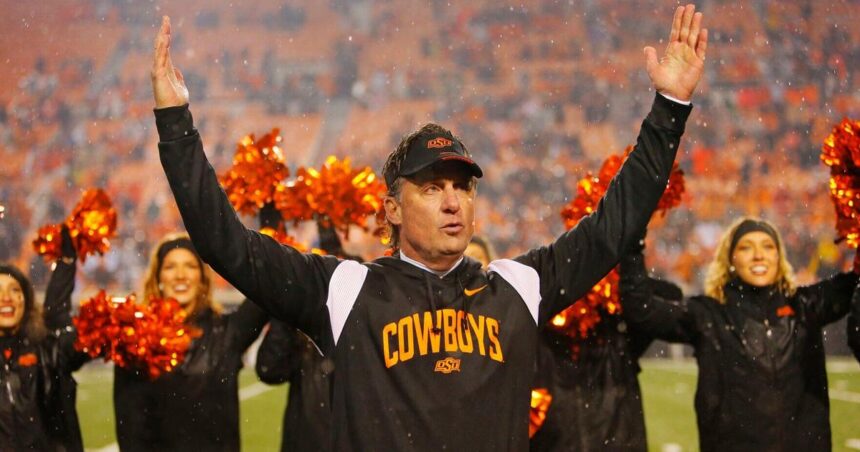Significant changes have taken place in college athletics in the past 48 months.
Developments have occurred in areas such as athlete name, image and likeness (NIL) rights, the transfer portal, and the NCAA vs. House settlement, allowing revenue-sharing with athletes.
While college football has benefited from lucrative media-rights deals, there is a growing gap between wealthier and less affluent programs.
Given the current uncertainty, some advocates argue for the need of a national commissioner to oversee the sport and ensure stability and consistency among its members.
Oklahoma State coach Mike Gundy expressed his thoughts during last week’s Big 12 Football Media Days in Las Vegas, stating, “We need somebody at the top who governs the whole thing to continue with the quality and keep it small. We’ll see how it goes, but I think there will be more changes over the next two or three years.”
People are also reading…
“If you have a college football commissioner who works with conference leaders, they all work together. Now, there will be give-and-take, so some commissioners might not want to do that; some will say, ‘I have more than you, so why would I want to do that?’ Because it’s better for college football.”
The SEC and Big Ten have separated themselves from the rest of the Power Four thanks to multi-billion-dollar media-rights deals that pay their member schools nearly $70 million annually. That’s approximately $30 million more than the Big 12 and ACC schools are expected to receive each year.
The financial disparity, coupled with growing discontent over the handling of NIL, has some wondering if the Power Four will eventually become the Power Two, with the SEC and Big Ten choosing to eventually break away from the NCAA and choosing to govern themselves.
Others believe it’s only a matter of time before we see the formation of super conferences, with leagues choosing to merge to pool resources.
“What’s best for college football — and this is probably way past my career — is to have equality across the board and try to lessen that gap financially, particularly now that we’re going to be paying players,” Gundy said.
Various coaches also shared their thoughts on the possibility of a national college football commissioner and the direction the sport may take in the future.





